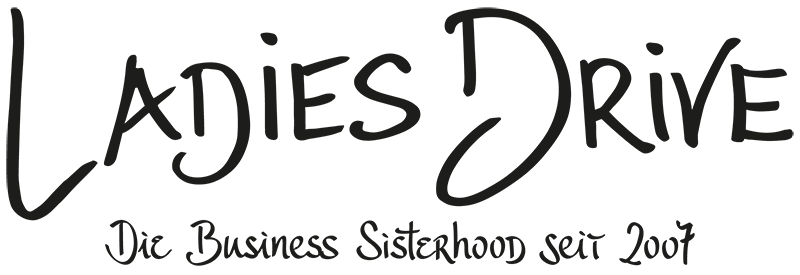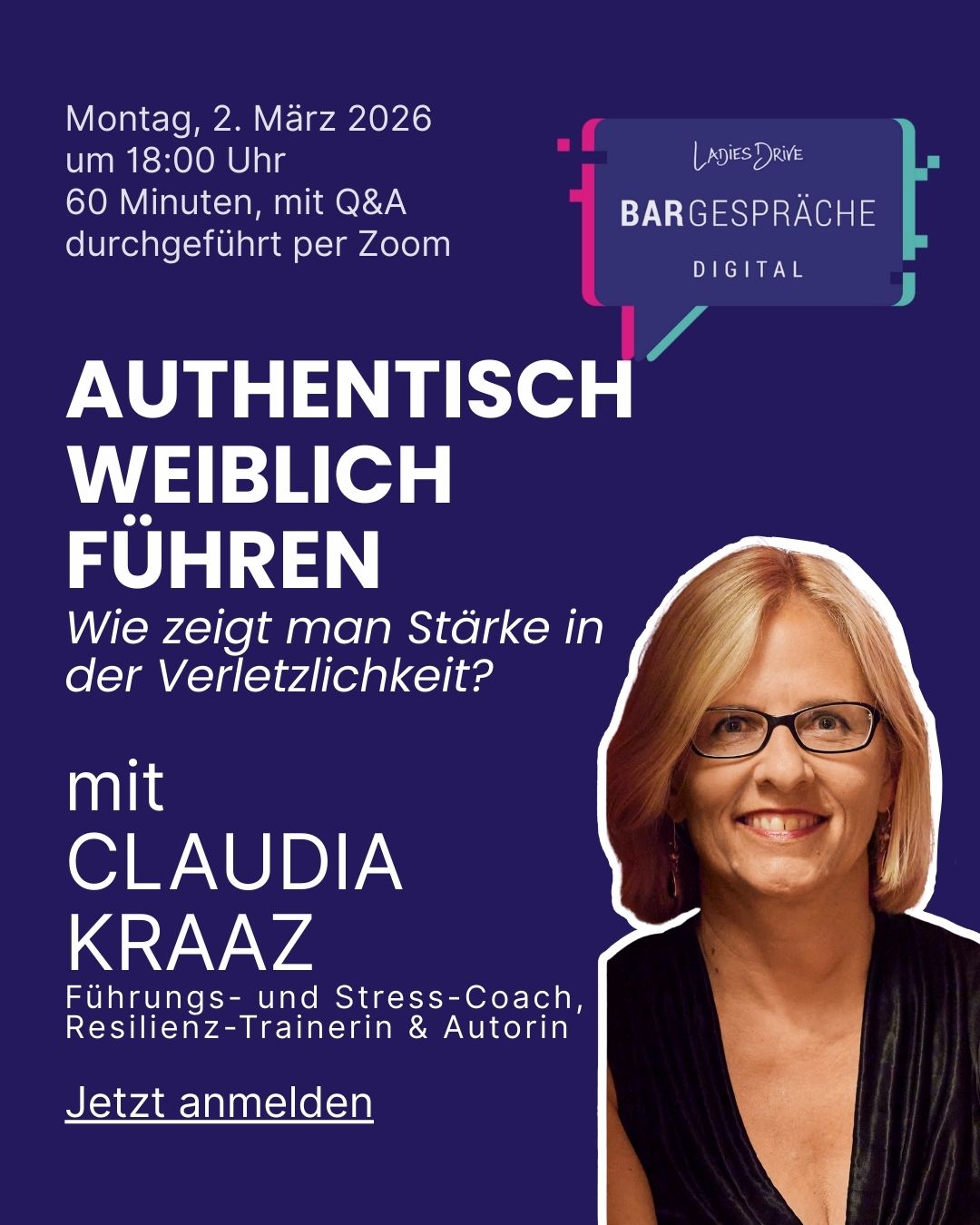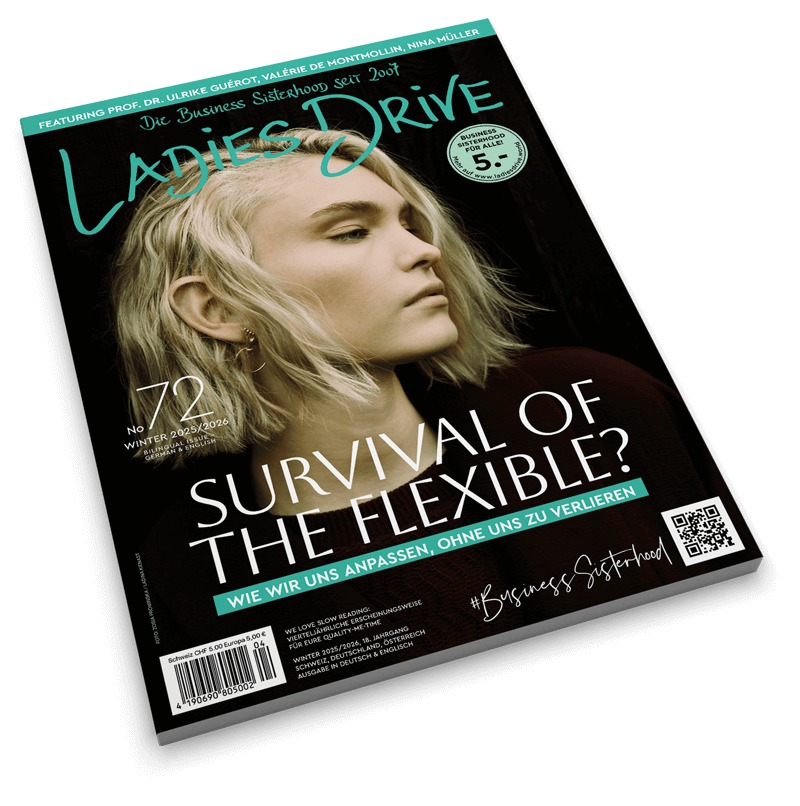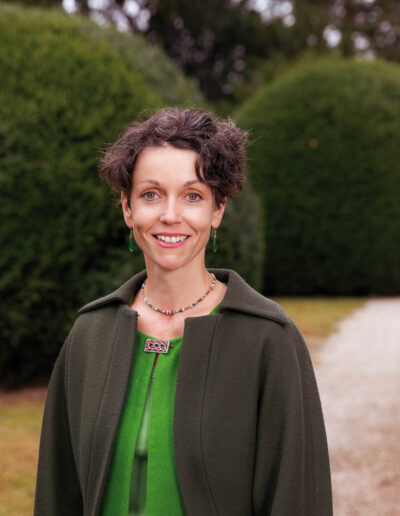Jennifer Blanke has a CV that is second to none. She is the former Vice President of the African Development Bank (AfDB), former Chief Economist at the World Economic Forum (WEF), and brings her expertise to the boards of several leading development and investment institutions. Over the course of three decades, she has delivered high-impact projects and initiatives aimed at driving strategy, policy reform, and investment for accelerated development. She recently joined Morphosis in Geneva – a transformative adaptation-solutions business for a climate-impacted world beyond 1.5°C. The Swiss-American top executive shares her view of the world and highlights what is truly going wrong – and how we can change it for the better.
Ladies Drive: What is the sound and the scent of your childhood?
Jennifer Blanke: I grew up in New York City, so the sounds and scents were very much those of busy traffic–honking, I suppose – but also lots of kids on my block. We lived close to Central Park, so oddly enough, it often smelled like freshly cut grass, even in the middle of New York. I grew up on the Upper West Side. It was a very exciting time. In the 70s and 80s, New York was transitioning – and I watched it evolve from being, in some ways, a place considered undesirable to live in, to becoming quite a lovely, family-friendly area with a thriving café culture.
How was it for you to grow up in an ever-changing environment?
Well, I’ve lived in ever-changing environments my whole life. What’s most interesting for me – because I’m a development economist – is trying to understand how it is possible that the future is already here, but so unevenly distributed. I grew up in a city that reflected that reality. Just as much as my neighbourhood was in transition, across the park was the Upper East Side – and some parts of it constituted the richest congressional district, not just of New York but of the entire United States. While just a few subway stops away was, at the time, the poorest congressional district: encompassing parts of the South Bronx, an area that has fortunately improved measurably since then. So I saw inequality up close, and I also saw it change. I think that made me realise what is possible – how much change is possible, and also how much needed to be done. I had a very solid foundation at home, so despite the chaos around me I had the safety of the family nest, and that probably gave me the confidence later on to venture out into the world and move abroad.
You moved to Europe and lived in Africa for a while.
Yes, my parents gave me the courage to go. My father was a dentist, but he worked in the South Bronx, mainly treating people who couldn’t afford private dental care – many of them were on welfare. He always said he didn’t really enjoy being a dentist, but he loved helping people. That mindset was a big part of my upbringing and values.
Why did you decide to study development economics?
I grew up during the Cold War, like many of us, and I was really interested in understanding how different political systems led to different solutions and outcomes. My first degrees were in international relations and comparative economics. Later, I moved to Europe and worked as a management consultant in Paris. But I increasingly felt that if I really wanted to understand what was happening, I had to delve deeper into the technical side of economics. Eventually, I moved to Geneva and joined the World Economic Forum, working on the Davos programme team. But I still wanted to study. So in parallel with my job I enrolled at the Graduate Institute in Geneva and did a PhD in economics. That gave me the tools to really understand complex economic issues – and also the confidence to call myself an economist. I think that’s something important to say, especially for women: sometimes, we need that confirmation to say, “Yes, I am an economist.” I think that greatly helped me to get where I am.
And what took you to Africa?
I had been in Geneva for a long time, raising my children with my wonderful and supportive husband and working at the World Economic Forum, where I eventually became Chief Economist. I loved the work – overseeing research on how countries can improve outcomes through competitiveness and sustainability. But after several years in that role, I felt I was living in an ivory tower. My PhD was on poverty and inequality, and having grown up in a transitioning environment, I wanted my children to experience something different. Switzerland is beautiful, and I’m grateful to have raised my children here – but I wanted them to see more of the world. Professionally, I also wanted to engage more directly with development and finance. I was headhunted by the African Development Bank in Abidjan, Côte d’Ivoire, to be a Vice President overseeing investments and programs in agriculture, water and sanitation, education, health, gender, and job creation – all areas I deeply care about. It was incredibly exciting.
What’s your biggest learning from your time in Africa?
One thing that might be interesting for your readers is a programme we set up to shift the banking sector in favour of lending to women entrepreneurs. We know women have excellent business ideas and run successful enterprises, and are exceptionally good at paying back loans. Yet they struggle to access bank financing – which, in Africa, is far more important for business development than in other regions. Venture capital simply doesn’t exist in the same way. The aim was to show banks – who often didn’t know how to lend to women due to different collateral or credit profiles – that this was, in fact, a smart investment. And show them, we did.
How was it to be back in this safe place called Switzerland?
I returned in the middle of Covid and decided to replicate some of the impact portfolios I’m passionate about, this time through other highly impactful institutions – by providing advisory support and sitting on the boards of organisations working on issues like food and nutrition, women’s empowerment, education, science, and menstrual health and hygiene. Most recently, I joined an exciting new startup called Morphosis – like metamorphosis, but just Morphosis. It focuses on rethinking the climate conversation. While we must continue pushing for mitigation – to slow the planet’s overheating – we also need to face a tough reality: we’ve already reached 1.5°C above pre-industrial levels, and will unfortunately shoot beyond it. So, the ability to adapt is critical, and this requires new ideas and investments. Our company focuses on three Is: investment, implementation and insights, as a platform to encourage more private sector investment into adaptation economies, where markets generate profitable businesses providing the affordable goods and services needed to thrive in a warmer world. Our focus is on low- and middle-income households in vulnerable regions. The reality is that wealthy people will always afford what they need: heat resistant building materials, cooling systems, food and water, but we must ensure markets serve everyone.
And as a former Chief Economist at the World Economic Forum, with the education, insights and wisdom gained through all those roles – may I ask: when and how did things start to go wrong, leading us to where we are today?
I’m afraid part of it was complacency. Things were going well for many – though not for all, let’s be clear. There was this belief that we’d reached the “end of history” – that democracy had triumphed, and peace and prosperity would simply continue. But meanwhile, we were polluting the atmosphere, leaving large groups behind. Now the bill has come due. We’ve re-entered a phase of instability – one we thought we’d left behind. Who would have thought we’d see war return to Europe? And yet, here we are. We stopped putting in the effort to keep things on the right track – and that’s when it started to unravel.
But who says what’s the right track?
Exactly. There’s no single brilliant person with all the answers, and there are different paths. Look at the US, look at China – major countries are shaping their own trajectories, each with strengths and weaknesses. That’s why dialogue is so important.
It may sound obvious, but nations must keep talking, rather than painting each other as enemies. And that goes for within countries too. I’m Swiss and American, and while it’s less extreme in Switzerland, in the US it’s intense. Why does disagreeing have to mean mutual hatred? The same is happening in Germany, France, and elsewhere. We need to learn to disagree respectfully – don’t ghost each other! That’s where dialogue dies.
Let’s agree to disagree?
Yes! And that’s something I’ll work on for the rest of my life. We all try, in our own ways, to make a difference. You do it through your publications and platform. I also believe we need more women in leadership roles.
Why? I suppose I know, but I’d love to hear your take.
Not because women are perfect, but because we bring diversity of thought. Some of my WEF research showed women are more concerned about the future and weigh potential risks more heavily – so we prepare differently. We also tend to be more conciliatory. Of course, not all women, but generally that’s true. So I’m not saying women should take over – though why not? (Laughter) – but the world would benefit from more female leaders in business, government, and civil society.
How can we, as women, stay true to our feminine side and values while operating in a male-dominated, hierarchical business world? How do we lead with heart, yet stay focused?
Part of it is strength in numbers. I’m sure you’ve been the only woman in the room or on a panel. Once there are more women, globally and locally, it shifts the tone of the conversation. That said, I’m not here to throw stones – there are plenty of thoughtful, empathetic men. For me, it’s about bringing my full self to everything I do – not creating a separate “business me” and “home me.” I’ve even been told by a former boss, “If you keep looking the way you do, you might not get very far.” That was about 15 years ago. It hit me hard. Fortunately, I had a coach who said, “Ignore that. Stay yourself.” We have to keep supporting each other through moments like that. That same man actually suggested I cut my hair short and try to look more like him.
Oh, I know what you mean – I used to be told that with my curls, I didn’t look like a serious businesswoman.
Exactly! We need to tell women: just do your thing. Don’t feel you have to fit into some cookie-cutter mould. There’s still that persistent bias, backed by many studies: he’s assertive, she’s bossy. We need to rewrite the narrative on what it means to lead, and what a leader “looks like”.
Is capitalism still the right model for the economy?
That depends on what you mean by capitalism – it’s a loaded term. I do believe in markets, but properly regulated ones. Take China: their top-down model isn’t perfect, but it gets results. Countries like Switzerland or the US are more laissez-faire. Still, if you block markets from functioning, nothing works. That’s the key: let them operate – within limits.
So, how much regulation is right? How much freedom?
It has to be appropriate regulation – not excessive. One way I think about it: business is not just responsible to shareholders, but to all stakeholders – especially the planet. For years, companies polluted freely, and the government paid to clean it up. But government is taxpayers – us. So when businesses only answer to shareholders, we foot the bill. That’s no longer acceptable. Companies must build their societal and environmental impact into their business models. Don’t leave the mess to us. Some past innovations that once seemed great clearly don’t hold up anymore. That’s why we need regulation – and accountability. Companies should hold themselves accountable, too. But we shouldn’t stifle innovation. In Switzerland and similar economies, the buck stops with the board. If a CEO acts irresponsibly, the board must step in. Maybe we need stronger consequences. There are a lot of good people on boards – but they must do their jobs.
And what happens to market prices if we enforce fair pay?
First, let’s be clear: fair pay doesn’t mean everyone earns the same. Equal pay for the same job, yes – but fairness isn’t uniformity. Take minimum wage. It’s debated a lot. Yet most data show that, unless it’s unrealistically high, it doesn’t raise prices dramatically. It doesn’t stifle innovation or lead to mass layoffs. These are societal choices. Fair pay is one question. Another: should everyone have access to healthcare? In Switzerland, that’s a given. But not everywhere. These are decisions societies make. The US, for example, has the world’s highest healthcare costs – and poor outcomes. Many aren’t even covered. So it’s not just about money – it’s about what people value, and what they’re willing to prioritise. It’s often easier in more homogeneous societies, like in Scandinavia. But ultimately, you need to bring people to the table and agree on shared priorities. I voted with my feet – you can see where I live now.
So overall – is there a country that’s doing it quite well, in your opinion?
Switzerland. I’m a big fan. The Nordic countries, like Finland, are also doing well – especially in education, which we haven’t even touched on yet. It’s a huge part of the equation: how do you prepare people for the opportunities of the future? Switzerland excels here too – low unemployment, strong university and vocational training systems. That said, to be fair to other countries, Switzerland is small, cohesive and wealthy. Which came first? Hard to say. There are different languages, but something about the system works. I remember being at a meeting in Africa about 10 or 15 years ago. Someone asked, “How many Swiss people are in the room? Several people raised their hands. And who can name Switzerland’s president?”. Only two raised their hands. The Africans were shocked – how could people not know who leads their country? But in Switzerland, it’s not about the individual – it’s about the institutions.
Switzerland seems to do well at agreeing to disagree – keeping dialogue open. Could we scale that up elsewhere?
It’s multilayered. Technically, yes, it’s possible – but culturally, it’s not easy to copy-paste. Try telling people in highly centralised systems that institutions matter more than leaders? That the president doesn’t matter? It clashes with deeply embedded power structures.
And stripping people of power is always tricky.
Yes – and we also have to respect different cultures. But one thing I’d love to export from Switzerland and parts of Europe to the US is the multi-party system. That alone could solve a lot.
Looking at the global economy today – what’s your outlook?
If there’s war, it doesn’t matter how good your institutions or healthcare are. Security comes first – whether that’s war, like in Ukraine or parts of Africa, or internal safety, like in South Africa. Beyond that, everyone’s talking about AI. Will it take all our jobs? Are we heading for a dystopia where machines do everything and humans are obsolete? I’m cautiously optimistic. Yes, there are security risks – even the people who build these systems don’t always know how they work, which is unsettling. But what AI can already do is incredible. And historically, every time a major new technology emerged, we feared mass unemployment and collapse. And while there are often painful transitions, in the end it never played out that way. Humans are resilient, innovative – and they adapt. But back in the day, things moved much, much slower. Now, artificial intelligence is the first innovation that can create on its own without human input. That has never happened before with any technology.
Yes, security is a major issue. We need regulation, and there’s a huge debate between governments and Silicon Valley – where many say, “Be careful.” I sat on an advisory group on AI at the Carnegie Council for a while. We focused especially on inequality – how AI can increase it, since mostly white men write the code, and the algorithms then perpetuate themselves. That concern has grown, especially as AI approaches the ability to programme itself. We’re not quite there yet, but very close. There’s talk about autonomous defence systems, like drones deciding their own actions. This stuff feels like Star Wars or sci-fi movies we grew up with. I won’t deny the danger. Governments must step in and regulate, making sure companies implement guardrails. But remember, cars can hit people, too. Who imagined planes and cars becoming weapons? Regulation is key, and things must be properly managed. I tend to look for silver linings. I’m an optimist – I just can’t help it.
How could I get out of bed if I only focused on negatives? Being entrepreneurial means always trying to see the positive and how technology can help, while holding governments accountable to protect us. As Barney Frank, a brilliant former U.S. congressman, said: “Government is simply the name we give to the things we choose to do together.”
But as an economist, how do you see the future economically?
There’s the business cycle – ups and downs. Honestly, we haven’t had a real correction yet. Take the stock market: it almost has a life of its own. As long as people bet on the future, they will keep going. If others join, more will follow. Regarding the real economy–the making of actual goods and services – I’m optimistic. I do worry about some government actions, but governments come and go. We now have the knowledge and tools to move forward. It’s up to humans to rise to the occasion. In a world moving faster and faster, you can’t rely on learning a trade once and depending on it forever. Flexibility and continuous learning are essential.
How can we train ourselves to stay flexible and adaptable?
Much of it is mindset. Our education systems must adapt to continuous learning. Curiosity is crucial – if you’re curious about how things work, you stay updated with useful knowledge you might otherwise miss. Understanding data is vital. I always tell my friends’ kids–and my own – to learn data literacy, because data will in many ways be the currency of the future. Financial literacy is hugely important, especially for women, who often lack it. Teaching young people, especially girls, to think about data, math, and finance – that’s the skillset of the future.

Jennifer Blanke will be one of our keynote speakers at the League of Leading Ladies Conference 2026 (April 13-14, 2026).



















